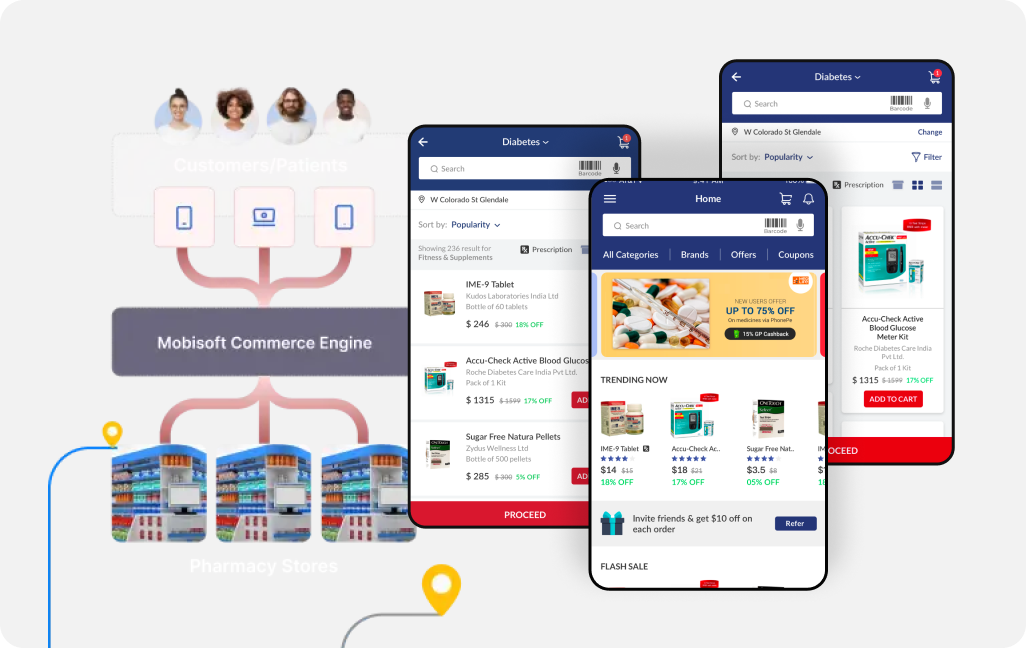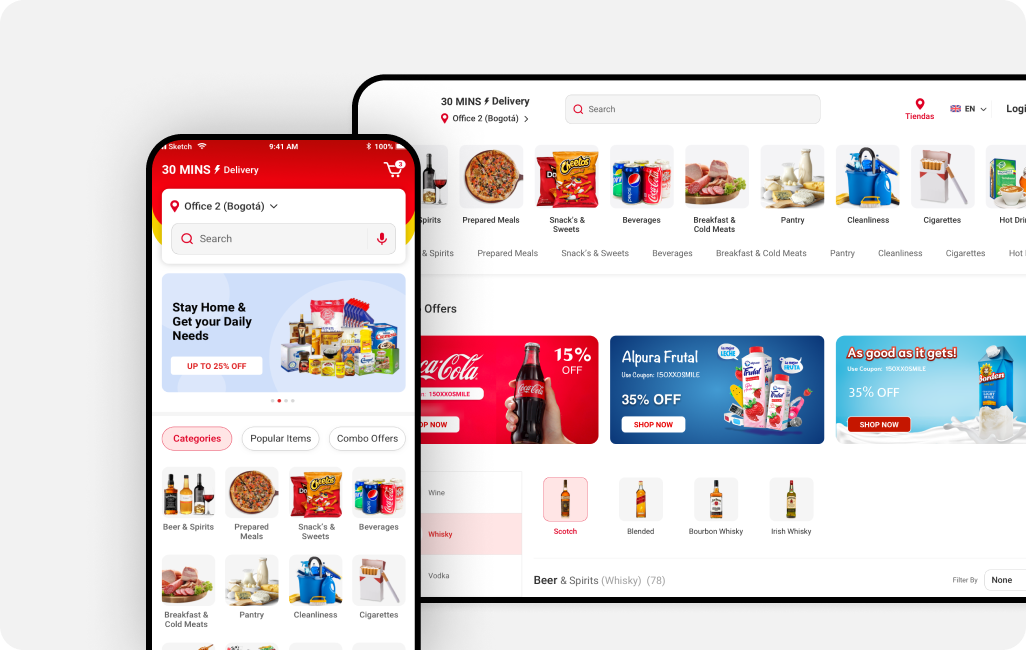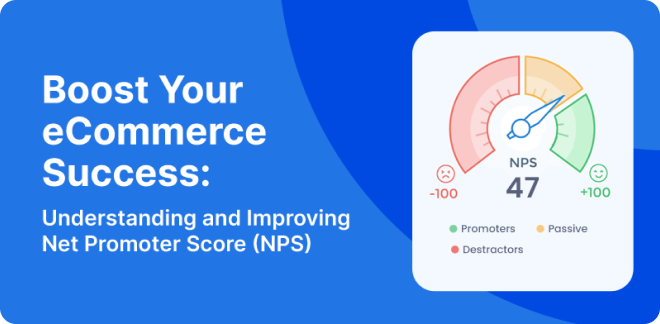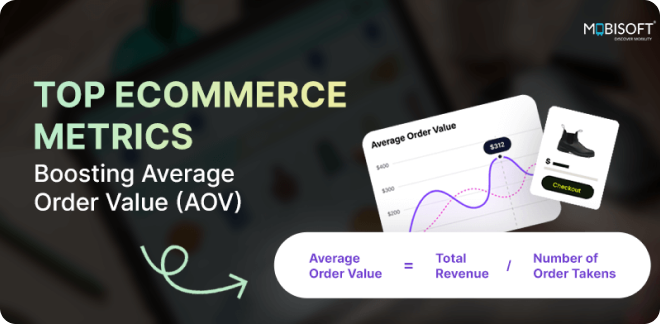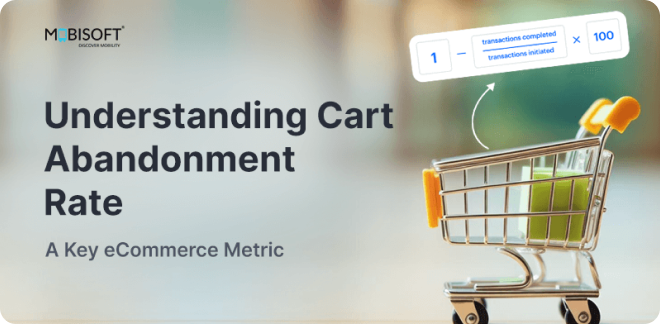A robust ecommerce presence is crucial for businesses looking to thrive in the online
marketplace. At Mobisoft, we leverage cutting-edge technologies and industry best practices to
deliver exceptional ecommerce solutions tailored to your unique business needs.
This comprehensive guide will provide you with an in-depth understanding of our ecommerce
development services, from the technology stack we use to our approach to security, maintenance,
and cost considerations
Why Ecommerce Development Services Matter
The ecommerce sector is experiencing unprecedented growth, with global sales crossing the
$6.3 trillion mark (2024), and expected to grow between 35-45% annually.
This surge is driven by changing consumer behaviors, technological advancements, and the
increasing demand for convenient, personalized shopping experiences. Ecommerce development
services are crucial for businesses looking to:
- Expand market reach beyond geographical limitations
- Offer 24/7 availability to customers
- Reduce operational costs associated with physical stores
- Gather valuable customer data for personalized marketing
- Streamline inventory management and order fulfillment
- Adapt quickly to market trends and consumer preferences
Tech Stack For Ecommerce Development Services
At Mobisoft, we pride ourselves on using a versatile and powerful tech stack that allows us
to create scalable, high-performance ecommerce solutions. Our technology choices are driven
by the specific needs of each project, ensuring that we always use the most appropriate
tools for the job.
Frontend Technologies
React.js: We use React for building dynamic and responsive user interfaces. Its
component-based architecture allows for efficient development and easy maintenance,
ideal for ecommerce website development.
Vue.js: For projects that require a lighter footprint, we often turn to Vue.js.
It's particularly useful for creating fast, interactive single-page applications,
enhancing ecommerce web development.
Angular: When dealing with large-scale, feature-rich applications, Angular
provides a robust framework for creating complex frontend architectures, essential for
custom ecommerce solutions.
Next.js: For projects that require server-side rendering and static site
generation, we leverage Next.js to improve performance and SEO, crucial for ecommerce
site optimization.
Progressive Web Apps (PWAs): We implement PWA technologies to create web
applications that offer a native app-like experience, improving engagement and
conversion rates, a key aspect of ecommerce mobile app development.
Backend Technologies
Node.js:We use Node.js for building scalable network applications,
particularly when real-time features are required, suitable for ecommerce technology
consulting.
PHP (Laravel/Symfony): For projects that require a robust, full-featured
backend, we often turn to PHP frameworks like Laravel or Symfony, important for
enterprise ecommerce development.
Python (Django/Flask): When working with data-intensive applications or
integrating machine learning capabilities, Python frameworks provide an excellent
foundation for bespoke ecommerce development.
Java (Spring Boot): For enterprise-level applications that require high
concurrency and robust performance, we leverage the power of Java and the Spring
ecosystem, crucial for scalable ecommerce solutions.
Database Technologies
MySQL/PostgreSQL: These relational databases are our go-to choices for
structured data storage, offering reliability and ACID compliance, essential for
ecommerce data management.
MongoDB: For projects that require more flexibility in data modeling, we use
MongoDB as a document-oriented database solution, important for custom ecommerce
development.
Elasticsearch : To provide powerful search capabilities in ecommerce
applications, we integrate Elasticsearch for fast, relevant results, enhancing
ecommerce search optimization.
Ecommerce Platforms
Magento: For large-scale, highly customizable ecommerce solutions, Magento
provides a feature-rich platform that we can tailor to specific business needs,
ideal for Magento ecommerce development.
Shopify/
Shopify Plus Development Services : When rapid deployment and ease
of
use are priorities, we leverage Shopify's robust ecosystem for both small businesses
and enterprise clients, crucial for Shopify ecommerce development.
Custom Solutions: When off-the-shelf platforms don't meet specific
requirements, we develop custom ecommerce solutions from the ground up.
Salesforce Commerce Cloud: Streamline entire ecommerce operations by enabling
more automation, more AI, and more powerful features, critical for ecommerce
automation solutions.
DevOps and Cloud Infrastructure
Docker: We use containerization to ensure consistency across development,
testing, and production environments, essential for ecommerce cloud solutions.
Kubernetes : For complex, distributed systems, Kubernetes allows us to
orchestrate and manage containerized applications at scale, important for scalable
ecommerce infrastructure.
AWS/Google Cloud/Azure: We leverage cloud platforms to ensure scalability,
reliability, and global reach for our ecommerce solutions.
CI/CD Tools (Jenkins, GitLab CI):Our continuous integration and deployment
pipelines ensure rapid, reliable updates to your ecommerce platform, crucial for
ecommerce development efficiency.
By leveraging this diverse tech stack, we're able to create ecommerce solutions that
are not only powerful and scalable but also tailored to the specific needs of each
business we work with.
We Follow Human-Centric UI/UX Fundamentals
At Mobisoft, we understand that the success of an ecommerce platform hinges on
providing an exceptional user experience, across all screens and touchpoints. Our
approach to UX design is deeply rooted in human-centric principles, ensuring that
every interaction with your ecommerce store is intuitive, engaging, and
conversion-oriented.
Mobile-First Design
We adopt a mobile-first approach to design, recognizing that a significant portion
of ecommerce traffic and transactions occur on mobile devices. This means:
Responsive Layouts:Our designs adapt seamlessly to various screen sizes and
orientations.
Touch-Friendly Interfaces: We ensure that all interactive elements are easily
tappable and swipeable on touchscreens.
Performance Optimization: We prioritize fast loading times and smooth
interactions on mobile networks.
Intuitive Navigation
Easy navigation is crucial for keeping users engaged and guiding them towards a
purchase
Clear Menu Structures: We design logical, easy-to-understand menu hierarchies.
Search Functionality: We implement robust search features with
auto-suggestions and filters.
Product Categorization: We create intuitive product categories and
subcategories for easy browsing.
Streamlined Checkout Process
A smooth checkout process is essential for reducing cart abandonment:
Minimal Steps: We reduce the number of steps required to complete a purchase.
Progress Indicators: We show users where they are in the checkout process.
Guest Checkout Option:We offer guest checkout to reduce friction for new
customers.
Multiple Payment Options: We integrate various payment methods to cater to
user preferences.
Ecommerce: Personalized
We leverage data and AI to create personalized experiences:
Product Recommendations:We implement algorithms to suggest relevant products
based on user behavior.
Personalized Content:We display content tailored to the user's browsing and
purchase history.
Saved Preferences: We allow users to save their preferences for a more
customized experience.
Visual Hierarchy
We use design principles to guide users' attention and actions
Clear Call-to-Actions (CTAs):We design prominent, actionable CTAs to encourage
conversions.
Product Imagery:We showcase high-quality product images and videos to aid
decision-making.
Whitespace Utilization: We use whitespace effectively to create a clean,
uncluttered interface.
Accessibility
We ensure that our ecommerce platforms are accessible to all users:
WCAG Compliance:We adhere to Web Content Accessibility Guidelines.
Screen Reader Compatibility:We optimize our interfaces for screen reader
users.
Color Contrast: We ensure sufficient contrast for readability.
Performance and Feedback
We focus on creating responsive interfaces that provide clear feedback:
Loading Indicators: We implement subtle loading animations to indicate ongoing
processes.
Error Handling: We display clear, actionable error messages when issues occur.
Micro-interactions:We display clear, actionable error messages when issues
occur.
By adhering to these human-centric mobile and web UX fundamentals, we create
ecommerce experiences that not only look great but also function intuitively across
all devices, leading to higher engagement, increased conversions, and improved
customer satisfaction.
Our Approach to Gather Requirements for Ecommerce Projects
At Mobisoft, we believe that a thorough understanding of our clients' needs is the
foundation of any successful ecommerce project. Our ecommerce development company
follows a comprehensive, collaborative, and tailored approach for each unique
business. Here’s an overview of our approach
Initial Consultation
We start with an in-depth discussion to understand your business goals, target
audience, and vision for the ecommerce website development. This includes:
- Identifying key stakeholders and decision-makers
- Understanding your current ecommerce website development services and future
aspirations
- Discussing any existing pain points or challenges in your current ecommerce
setup
Market and Competitor Analysis
To position your ecommerce platform effectively, we conduct:
- A thorough analysis of your target ecommerce market
- An assessment of your main ecommerce website design and development competitors
- Identification of industry trends and best practices in ecommerce
User Research
Understanding your customers is crucial. We gather insights through:
- User interviews and surveys
- Analysis of existing customer data and behavior patterns
- Creation of user personas and customer journey maps
Technical Requirements Gathering
We dive deep into the technical aspects of your project
- Evaluating your current technology stack and ecommerce integration services
- Discussing scalability requirements and expected traffic volumes
- Identifying necessary third-party ecommerce web solutions (payment gateways,
shipping providers, etc.)
Feature Prioritization
We work with you to prioritize features based on:
- Business impact and value
- Development complexity
- Budget and timeline constraints
We often use techniques like the MoSCoW method (Must have, Should have, Could have,
Won’t have) to categorize features effectively.
Content and Design Requirements
We explore your content and design needs:
- Discussing your brand guidelines and visual preferences
- Planning for custom ecommerce website development and content requirements
- Identifying any multimedia needs (product photos, videos, etc.)
Security and Compliance Requirements
We ensure that all necessary security measures and compliance requirements are
identified
- Discussing industry-specific regulations (e.g., GDPR, PCI DSS)
- Identifying data protection and privacy requirements
- Planning for secure payment processing and data storage
Performance Requirements
We establish clear performance expectations:
- Defining target load times and performance metrics
- Discussing peak traffic handling capabilities
- Planning for global access and content delivery requirements
Maintenance and Support Requirements
We plan for the long-term success of your platform:
- Discussing post-launch support needs
- Planning for regular updates and maintenance
- Identifying staff training requirements
Documentation and Approval
Throughout the process, we maintain clear documentation:
- Creating detailed requirement specifications
- Developing wireframes and mockups for key pages
- Obtaining stakeholder approval at each stage
Iterative Refinement
Our process is not linear but iterative:
- We encourage continuous feedback and refinement
- We adapt to changing needs and new insights throughout the project lifecycle
Final Review and Sign-off
Before moving to the development phase, we conduct a final review:
- Presenting a comprehensive project plan
- Reviewing all gathered requirements with stakeholders
- Obtaining final approval and sign-off
By following this thorough approach to requirement gathering, we ensure that we have
a clear, shared understanding of your ecommerce project’s goals and specifications.
This forms the foundation for successful development, minimizing surprises and
ensuring that the final product aligns perfectly with your business needs and user
expectations.
How We Secure Data
At Mobisoft, we understand that data security is paramount in ecommerce website
development services. Our comprehensive approach to data security encompasses
multiple layers of protection to safeguard your business and customer
information. Here's how we integrate ecommerce security measures into our
processes
Encryption
We implement strong encryption practices to protect data both at rest and in
transit
- SSL/TLS Encryption: All data transmitted between the user's browser and
our servers is encrypted using the latest SSL/TLS protocols, ensuring robust
ecommerce site optimization.
- Database Encryption: Sensitive data stored in databases is encrypted
using industry-standard algorithms, which is critical for ecommerce web
development services.
- API Encryption: All API communications are encrypted to prevent data
interception, an essential practice for ecommerce api development.
Access Control
We implement strict access control measures:
- Role-Based Access Control (RBAC): We define and enforce user roles with
specific permissions to ensure that access control aligns with ecommerce
technology consulting needs.
- Multi-Factor Authentication (MFA):We implement MFA for admin and user
accounts to add an extra layer of security, addressing concerns in custom
ecommerce website development.
- Strong Password Policies: We enforce robust password requirements and
regular password rotations, essential for enterprise ecommerce development.
Data Isolation
We ensure proper isolation of data:
- Separate Environments: Development, staging, and production
environments are kept separate to ensure security and efficiency in scalable
ecommerce solutions.
- Data Segregation: In multi-tenant architectures, we ensure strict
segregation of client data, a practice important for bespoke ecommerce
development.
Regular Security Audits
We conduct frequent security assessments:
- Vulnerability Scanning: Regular automated scans identify potential
vulnerabilities in ecommerce website design and development projects.
- Penetration Testing: Periodic penetration tests address security
weaknesses, crucial for maintaining high standards in ecommerce web solutions.
- Code Reviews: Regular security-focused code reviews catch potential
issues early, ensuring that our ecommerce web design services are always up to
date with the latest security practices.
Secure Development Practices
Our development process is security-focused:
- Secure Coding Guidelines: We follow industry best practices for secure
coding, integral to our ecommerce web development services.
- Dependency Management: We regularly update and monitor third-party
libraries for security vulnerabilities to ensure the robustness of our custom
ecommerce development solutions.
- Security Training: Our developers undergo regular security awareness
training, which is crucial for any ecommerce website development company.
Monitoring and Incident Response
We maintain vigilant monitoring and have robust incident response procedures
- 24/7 Monitoring: Continuous monitoring of systems for suspicious
activities to protect ecommerce platform development.
- Intrusion Detection Systems (IDS): Implementation of IDS to alert on
potential security threats affecting ecommerce development services.
- Incident Response Plan: A well-defined plan for quickly addressing and
mitigating security incidents in our ecommerce web solutions.
Data Backup and Recovery
We ensure data resilience:
- 2 Regular Backups: Frequent, encrypted backups of all critical data to
safeguard your ecommerce website design and development.
- Disaster Recovery Plan: A comprehensive plan for data recovery in case of
major incidents impacting ecommerce technology consulting.
Ensuring 100% Compliance For Ecommerce Platforms
We adhere to relevant data protection regulations:
- GDPR Compliance: For handling EU citizen data in compliance with our
e-commerce website development services.
- PCI DSS Compliance: Ensuring secure handling of payment card information
as part of our ecommerce integration services.
- CCPA Compliance: For protection of California resident data, included in
our ecommerce migration services.
Ecommerce Security Practices We Follow
At Mobisoft, we recognize that security is a fundamental aspect of any ecommerce
platform. We adhere to stringent security practices to protect your business and
your customers' sensitive information.
Secure Coding Practices
- Input Validation: We implement strict input validation to prevent
injection attacks, a core part of our custom ecommerce website development
process.
- Output Encoding: Proper encoding of output prevents XSS attacks in
our
ecommerce website design services.
- Parameterized Queries: We use parameterized queries to prevent SQL
injection, enhancing our ecommerce website development.
- Error Handling: Secure error handling is crucial to avoid
information
leakage, a practice we integrate into ecommerce web design services.
Authentication and Authorization
- Strong Authentication: We implement robust authentication mechanisms,
including multi-factor authentication, for enterprise ecommerce development.
- Session Management: Secure session handling techniques help prevent
session hijacking in our headless ecommerce development projects.
- Password Security: We enforce strong password policies and securely
hash stored passwords, part of our ecommerce development company services.
- OAuth and OpenID Connect: We support these protocols for secure
third-party authentication in our ecommerce app development cost
considerations.
Payment Security
- PCI DSS Compliance: Ensuring compliance with Payment Card Industry
Data
Security Standard is crucial for handling credit card information in
ecommerce
mobile app development cost.
- Tokenization: We use tokenization for securely storing and
transmitting
payment information, addressing ecommerce site optimization.
API Security
- API Authentication: Robust authentication for all API endpoints is
crucial for our ecommerce api development.
- Rate Limiting: Applying rate limiting prevents API abuse, a key
aspect of
scalable ecommerce solutions.
- Input Validation: Thorough input validation on all API requests
helps
ensure secure ecommerce web solutions.
- HTTPS Only: All API communications occur over HTTPS to protect custom
ecommerce website development.
Network Security
- Firewalls: Implementing and maintaining robust firewall
configurations
is essential for ecommerce web design company security.
- Intrusion Detection/Prevention Systems (IDS/IPS): Deploying IDS/IPS
to
monitor and prevent network intrusions as part of ecommerce web development
services.
- Virtual Private Networks (VPNs): Using VPNs for secure remote access
aligns with ecommerce technology consulting practices.
Data Protection
- Encryption at Rest: Encrypting sensitive data stored in databases
ensures
the safety of ecommerce website development services.
- Encryption in Transit: Using SSL/TLS for all data transmissions is
vital
for ecommerce development services.
- Data Minimization: Collecting and retaining only necessary data to
minimize exposure, essential for ecommerce store development cost.
- Regular Data Purging: Implementing policies for regular data purging
as
part of custom ecommerce website development.
Security Monitoring and Incident Response
- Log Management: Comprehensive logs for all system and user activities
are
part
of our ecommerce web design services.
- Real-time Alerts: Setting up alerts for suspicious activities aligns
with
our
ecommerce site optimization efforts.
- Incident Response Plan: A clear plan for responding to and mitigating
security
incidents is critical for ecommerce web solutions.
Vendor Management
- Third-party Security Assessment: Conducting security assessments of
all
third-party vendors and services, crucial for ecommerce integration
services.
- Regular Audits: Performing regular security audits of integrated
third-party
systems in our enterprise ecommerce development.
Compliance and Regulations
- GDPR Compliance: Ensuring compliance with General Data Protection
Regulation,
relevant to our ecommerce platform development.
- CCPA Compliance: Adhering to California Consumer Privacy Act
requirements as
part of
ecommerce migration services.
-
- Industry-specific Regulations: Ensuring compliance with any
industry-specific
regulations for ecommerce technology consulting.
How Mobisoft Handles Maintenance and Support Post-Launch
At Mobisoft, we understand that launching an ecommerce application is just the
beginning. Continuous maintenance and support are crucial for ensuring the
long-term
success and smooth operation of your digital storefront.
Our comprehensive post-launch support strategy is designed to keep your app
running
smoothly, securely, and up-to-date with the latest technologies and user
expectations.
Proactive Monitoring
We employ advanced monitoring tools to keep a vigilant eye on your website’s
performance and health:
- Application Performance Monitoring (APM) Tools: We use tools like New
Relic,
AppDynamics, or Datadog to monitor real-time performance metrics, identify
bottlenecks, and optimize application speed for our ecommerce web
development
services.
- Server Monitoring: Tools such as Nagios or Zabbix are used to
monitor
server
health, resource utilization, and uptime, crucial for ecommerce platform
development.
-
- Error Tracking: We implement error tracking solutions like Sentry or
Rollbar
to
catch and diagnose issues quickly, ensuring a seamless experience in custom
ecommerce development.
- User Behavior Analytics: Tools like Mixpanel or Amplitude help us
understand
user interactions and identify areas for improvement in our ecommerce
development services.
Regular Updates and Patch Management
We maintain a proactive approach to updates and security:
- Scheduled Maintenance Windows: We perform regular updates during
pre-agreed
low-traffic periods to minimize disruption, essential for ecommerce website
design and development.
- Security Patch Management: We promptly apply security patches to
protect
against
newly discovered vulnerabilities in our ecommerce technology consulting.
-
- Version Control: We use Git for version control, allowing us to track
changes,
roll back if necessary, and maintain code integrity for ecommerce web
solutions.
- Automated Testing: We employ automated testing tools like Selenium or
Jest
to
ensure updates don’t introduce new bugs, which is vital for enterprise
ecommerce
development.
Scalability Management
As your business grows, we ensure your webstore can handle increased load
- Load Testing: We use tools like Apache JMeter or Gatling to simulate
high-traffic scenarios and optimize performance, key for scalable ecommerce
solutions.
- Auto-scaling Configuration: We set up auto-scaling rules in cloud
platforms
like AWS or Google Cloud to handle traffic spikes efficiently, crucial for
ecommerce mobile app development.
Database Management
We ensure your data remains secure, optimized, and easily recoverable
- Regular Backups: We use tools like Percona XtraBackup or native cloud
backup
solutions to perform regular, secure backups, essential for custom ecommerce
website development.
- Database Optimization: We use tools like MySQLTuner or PgHero to
optimize
database performance in our ecommerce development services.
- Data Migration Tools: For major updates or platform changes, we use
tools
like
Flyway or Liquibase to manage database schema changes, which is vital for
ecommerce site optimization.
Customer Support Integration
We help manage and respond to user issues effectively
- Ticketing Systems: We integrate tools like Zendesk or Freshdesk to
manage
customer support tickets efficiently, a key part of our ecommerce web design
company services.
- In-App Feedback: We implement in-app feedback tools like Instabug to
collect
user feedback and bug reports directly from the app, ensuring continuous
improvement for ecommerce app development.
Continuous Improvement
We don’t just maintain; we continuously improve your application:
- A/B Testing: We use tools like Optimizely or Google Optimize to test
new
features and UI changes, essential for ecommerce technology consulting.
- Feature Flagging: Tools like LaunchDarkly allow us to roll out new
features
gradually and control their visibility, crucial for enterprise ecommerce
development.
- User Feedback Analysis: We use sentiment analysis tools to gauge user
satisfaction and identify areas for improvement in our custom ecommerce
development projects.
Communication and Reporting
We keep you informed about your application's health and performance
- Regular Reports: We provide detailed reports on app performance,
user
engagement, and completed maintenance tasks as part of our ecommerce web
solutions.
- Incident Response: In case of any issues, we have a clear
communication
protocol
to keep you informed and updated, ensuring transparency in ecommerce
development
services.
-
- Change Management: We maintain a detailed log of all changes and
updates
made to
the application, essential for ecommerce mobile app development cost.
By leveraging these tools and methods, Mobisoft ensures that your ecommerce
store/app
remains secure, performant, and aligned with your business goals long after its
initial launch. Our comprehensive maintenance and support approach allows you to
focus on growing your business while we take care of the technical details.
How Much Does It Cost To Develop An Ecommerce Store?
Determining the cost of developing an ecommerce store or application can be
complex
as it depends on various factors. At Mobisoft, we provide transparent and
detailed
cost estimates based on your specific requirements. Here's an overview of the
factors that influence the cost and some general pricing guidelines
Factors Influencing the Cost
- Complexity: The complexity of features and functionalities is a
primary cost
driver. A simple ecommerce store with basic features will cost less than a
complex app with advanced capabilities in ecommerce development services.
- In-App Feedback: We implement in-app feedback tools like Instabug to
collect
user feedback and bug reports directly from the app, ensuring continuous
improvement for ecommerce app development.
- Platform: Developing for a single website is generally less expensive
than
creating a full-fledged ecommerce store with payment features and real-time
monitoring of user journeys, essential for custom ecommerce website
development.
- Design Requirements: Custom, high-end designs with animations and
complex UI
elements will increase the cost compared to using standard design elements
in
our ecommerce web solutions.
- Backend Infrastructure: The need for a robust backend system to
handle data,
user accounts, and transactions will add to the overall cost for enterprise
ecommerce development.
- Third-party Integrations: Integrating with payment gateways, shipping
providers,
social media platforms, or other third-party services will impact the cost,
crucial for ecommerce site optimization.
- Security Measures: Implementing advanced security features,
especially for
handling sensitive user data and transactions, will add to the development
cost
for ecommerce platform development.
- Scalability Requirements: Building an app that can handle high
traffic and
grow
with your business may require more upfront investment, which is essential
for
scalable ecommerce solutions.
- Maintenance and Support: Ongoing maintenance, updates, and support
should
be
factored into the overall cost of ownership, a key consideration in
ecommerce
web development services.
Cost Breakdown
Here's a general breakdown of how the development cost might be
distributed:
- Planning and Requirements Gathering: 10-15%
- Design (UI/UX): 20-25%
- Frontend Development: 25-30%
- Backend Development: 20-25%
- Testing and Quality Assurance: 10-15%
- Deployment and Initial Support: 5-10%
Additional Costs to Consider
- Marketing: Budget for ecommerce store optimization, paid
advertising, and
other
marketing efforts related to ecommerce technology consulting.
- Ongoing Maintenance: Factor in costs for updates, bug fixes, and
platform
compatibility updates (typically 15-20% of the initial development cost
annually) in ecommerce web design services.
- Server Costs: Cloud hosting and database management costs will vary
based on
your app's requirements and user base, crucial for ecommerce mobile app
development cost.
- Third-party Service Fees: Some third-party services or APIs may have
ongoing
subscription or usage-based fees.
Our Approach to Pricing
At Mobisoft, we believe in providing transparent and fair pricing. Our process
includes:
- Detailed Requirements Analysis: We work closely with you to
understand your
exact needs and goals for custom ecommerce website development.
- Itemized Quote: We provide a detailed breakdown of costs for each
aspect of
the
development process.
-
- Flexible Engagement Models: We offer fixed-price, time and materials,
or
dedicated team models to suit your needs and budget for ecommerce
development
services.
- Phased Development: For larger projects, we can break the development
into
phases, allowing for more manageable costs and faster time-to-market for
core
features, essential for ecommerce web solutions.
- Scalable Solutions: We design solutions that can grow with your
business,
preventing the need for costly rebuilds in the future.
While the initial cost of developing a high-quality ecommerce app may seem
significant, it's an investment in your business's digital future. A
well-designed,
robust ecommerce app can dramatically increase your reach, improve customer
engagement, and drive substantial revenue growth.
To get an accurate estimate for your specific ecommerce website or app idea, we
recommend scheduling a consultation with our team.
We can discuss your requirements in detail and provide a customized quote
tailored to
your unique business needs.











